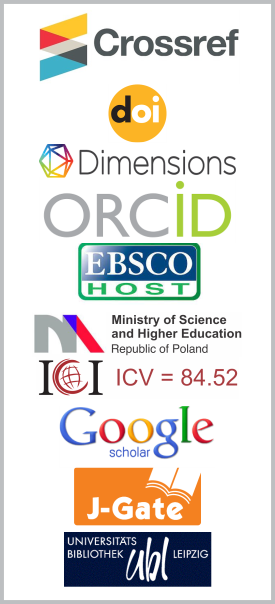Application of Artificial Intelligence (AI) in the Lifecycle of Sustainable Buildings: An Exhaustive Literature Review
DOI:
https://doi.org/10.26713/jims.v16i1.2947Abstract
With architectural structures accounting for significant share of global energy consumption and greenhouse gas emissions, the integration of Artificial Intelligence (AI) is a promising avenue for enhancing sustainability throughout the building lifecycle. This paper aims to investigate current insights regarding AI’s potential to improve energy efficiency and mitigate environmental impacts in building design, construction, and operational management. A comprehensive literature review and synthesis was conducted to identify relevant AI technologies that promote sustainable construction practices, assess their impacts, and examine challenges to effective real-world implementation. The review utilized rigorous search methodology with specific keywords related to AI applications in sustainable building design, construction, and operations. The findings reveal AI’s capabilities in optimizing energy efficiency through advanced control systems, improving predictive maintenance, and facilitating beneficial design simulations. Machine learning algorithms enable data-driven analytics and forecasting, while digital twin technologies offer real-time insights for strategic decision-making. The review identifies impediments to AI adoption, such as cost concerns, data security vulnerabilities, and challenges in implementing advanced systems. AI has transformative potential for enhancing sustainability in the built environment, providing innovative strategies for energy optimization and eco-friendly practices. Addressing technical and practical challenges is crucial for effective integration of AI into sustainable building methodologies.
Downloads
Downloads
Published
How to Cite
Issue
Section
License
Authors who publish with this journal agree to the following terms:- Authors retain copyright and grant the journal right of first publication with the work simultaneously licensed under a CCAL that allows others to share the work with an acknowledgement of the work's authorship and initial publication in this journal.
- Authors are able to enter into separate, additional contractual arrangements for the non-exclusive distribution of the journal's published version of the work (e.g., post it to an institutional repository or publish it in a book), with an acknowledgement of its initial publication in this journal.
- Authors are permitted and encouraged to post their work online (e.g., in institutional repositories or on their website) prior to and during the submission process, as it can lead to productive exchanges, as well as earlier and greater citation of published work.




